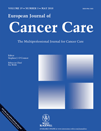Factors influencing return to work: a narrative study of women treated for breast cancer
Abstract
JOHNSSON A., FORNANDER T., RUTQVIST L.E. & OLSSON M. (2010) European Journal of Cancer Care19, 317–323Factors influencing return to work: a narrative study of women treated for breast cancer
The purpose of this qualitative study was to identify factors contributing to a successful return to the labour market after treatment for breast cancer from the women's own perspective. The study is based on 16 narratives – open-ended, in-depth interviews – about women's experiences and thoughts from the period after breast cancer surgery when they focused on their return to work. The women were recruited from participants of a multicentre trial, which allowed comparisons across a range of adjuvant therapies. The narratives of women who worked full time at a cut-off point of 1 year after surgery are analysed separately from the narratives of women still sick-listed at that point of time. The findings show that while all the women strove to belong to the labour market, the study also reveals changes in women's perceptions of the value of employment. The quality of social support received from employers and coworkers differed between women who returned to work and those still sick-listed 1 year after breast cancer treatment. A need to design interventions focusing on the work arena of women treated for breast cancer is pointed out.




